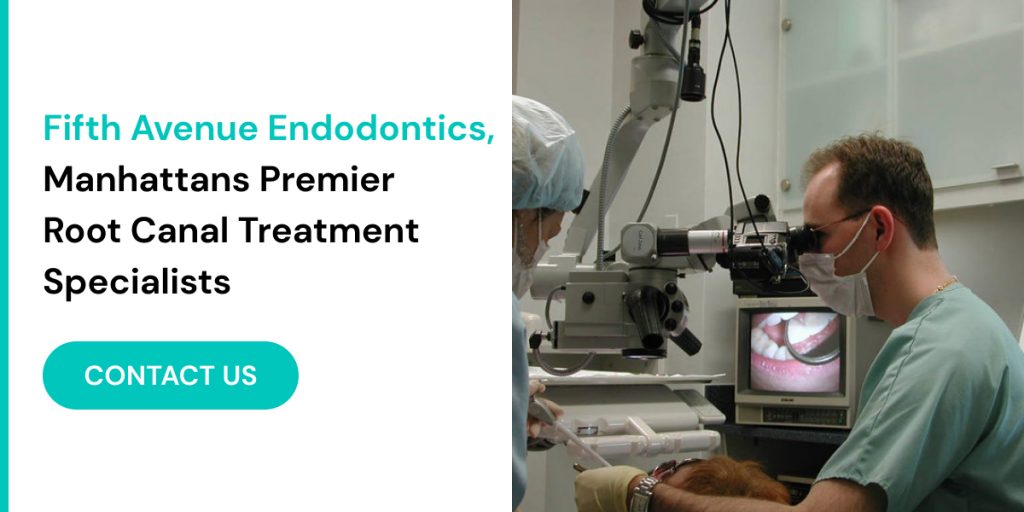When considering endodontic therapy, it’s crucial to recognize the unique needs of patients with eating disorders. These patients often face numerous oral health challenges that require specialized attention and care. As an Endodontist in Midtown Manhattan, our goal at Fifth Avenue Endodontic is to provide comprehensive care tailored to each patient’s specific health challenges. Dr. Iofin, a specialist in endodontics, understands the complexities involved in treating patients with eating disorders, ensuring they receive the best possible care.
Patients with eating disorders, such as anorexia nervosa, bulimia nervosa, and binge eating disorder, can suffer from significant dental issues due to the nature of their conditions. These issues include enamel erosion, tooth decay, gum disease, and oral infections. The frequent exposure to stomach acids from vomiting, a common symptom in bulimia, can cause severe enamel erosion, increasing the risk of cavities and tooth sensitivity. Furthermore, nutritional deficiencies often seen in these patients can weaken the teeth and gums, making them more susceptible to infections and other dental problems.
At Fifth Avenue Endodontic, we are committed to addressing these unique challenges with a comprehensive and compassionate approach. Dr. Iofin collaborates closely with each patient and their healthcare providers to develop a personalized treatment plan that addresses both their dental needs and their overall health. This holistic approach ensures that patients receive not only the necessary endodontic therapy but also support in managing their eating disorder’s impact on their oral health. By understanding and addressing the specific needs of patients with eating disorders, we strive to provide the highest quality of care and improve their overall well-being.
Understanding Eating Disorders and Their Impact on Oral Health
Eating disorders, including anorexia nervosa, bulimia nervosa, and binge eating disorder, can have severe consequences for oral health. These conditions often involve behaviors that lead to significant dental problems, such as enamel erosion, tooth decay, and gum disease. For instance, bulimia nervosa frequently includes self-induced vomiting, which exposes the teeth to stomach acids. This acid exposure causes severe enamel erosion, making teeth more susceptible to decay and sensitivity. Anorexia nervosa often leads to nutritional deficiencies that affect the strength and health of teeth and gums. These deficiencies can result in weakened oral structures, increasing the risk of infections and the need for specialized dental care. Additionally, patients with binge eating disorder may consume high quantities of sugary or acidic foods, further contributing to dental decay and gum disease. At Fifth Avenue Endodontic, we understand the intricate relationship between eating disorders and oral health. Dr. Iofin emphasizes the importance of a compassionate approach to treatment, recognizing the unique challenges these patients face. Our comprehensive care includes preventive measures, early intervention, and ongoing support to manage the oral health impacts of eating disorders effectively. Ensuring a collaborative approach with healthcare providers is essential to address both the physical and psychological aspects of these conditions.
The Role of an Endodontist in Midtown Manhattan
As an Endodontist in Midtown Manhattan, Dr. Iofin is uniquely positioned to address the specific needs of patients with eating disorders. These disorders often lead to severe oral health issues that require specialized care and attention. Endodontic therapy, commonly known as root canal treatment, becomes necessary when the tooth pulp, which contains nerves and blood vessels, becomes infected or inflamed due to extensive decay or damage. This type of damage is common among patients with eating disorders due to factors like frequent exposure to stomach acids from self-induced vomiting, poor nutrition, and oral hygiene neglect.
Patients with eating disorders are at a higher risk of dental complications, making the preservation of natural teeth particularly important. The loss of teeth can lead to further health issues, including difficulties with eating and speaking, which can exacerbate the underlying eating disorder. By maintaining their natural teeth through effective endodontic therapy, these patients can avoid the additional stress and complications associated with tooth loss.
Dr. Iofin’s expertise in endodontics allows him to provide tailored care for these patients, ensuring that their unique needs are met. He understands that the treatment process must be gentle and supportive, as patients with eating disorders often experience heightened dental anxiety. At Fifth Avenue Endodontic, the approach is holistic, considering not only the immediate need for root canal treatment but also the long-term health and well-being of the patient.

Moreover, Dr. Iofin collaborates with other healthcare professionals, including nutritionists, psychologists, and primary care doctors, to ensure a comprehensive treatment plan. This multidisciplinary approach is vital for addressing both the dental and overall health issues associated with eating disorders. The goal is to provide a supportive environment where patients feel understood and cared for, ultimately leading to better health outcomes.
By focusing on the specific challenges faced by patients with eating disorders, Dr. Iofin and the team at Fifth Avenue Endodontic strive to deliver exceptional care that goes beyond traditional endodontic therapy. Their commitment to patient-centered care ensures that each individual receives the attention and treatment they need to improve their oral health and overall quality of life.
Special Considerations in Endodontic Therapy for Eating Disorder Patients
- Comprehensive Dental Evaluation
Before proceeding with endodontic therapy, a thorough dental evaluation is essential for patients with eating disorders. This comprehensive assessment involves examining the extent of enamel erosion, identifying areas of decay, and evaluating the overall health of the gums and supporting structures. Eating disorders often lead to significant oral health issues, such as enamel erosion from repeated exposure to stomach acid, which can weaken teeth and make them more susceptible to decay and infection. At Fifth Avenue Endodontic, we take a holistic approach, considering both the immediate dental needs and the long-term health of our patients. This involves not only treating existing dental issues but also developing strategies to prevent further damage and maintain overall oral health.
- Customized Treatment Plans
Each patient’s treatment plan must be tailored to their specific needs, particularly for those with eating disorders. Customized treatment plans might include more frequent dental visits to monitor oral health, fluoride treatments to strengthen enamel, and dietary counseling to address nutritional deficiencies that can impact dental health. For instance, patients with bulimia may benefit from fluoride treatments to protect eroded enamel, while those with anorexia might need nutritional guidance to address deficiencies that affect gum health. Dr. Iofin works closely with patients and their healthcare providers to develop a comprehensive plan that supports both oral and overall health. This collaborative approach ensures that patients receive the necessary care to address their dental issues while also managing the broader impacts of their eating disorder.
- Managing Dental Anxiety
Patients with eating disorders may experience heightened dental anxiety, often due to past negative experiences or fear of judgment. This anxiety can be a significant barrier to seeking and receiving dental care. At Fifth Avenue Endodontic, we prioritize creating a compassionate and supportive environment to help alleviate these fears. We understand that dental visits can be particularly stressful for patients with eating disorders, and we aim to make their experience as comfortable as possible. We utilize sedation dentistry options to help anxious patients feel more comfortable during their procedures. Sedation can range from mild sedation, such as nitrous oxide (laughing gas), to deeper sedation options, depending on the patient’s level of anxiety and the complexity of the procedure. By providing a calming and understanding environment, we help patients overcome their fears and receive the necessary treatment.
- Preventive Measures
Preventing further dental damage is crucial for patients with eating disorders. This includes educating patients on the importance of oral hygiene, recommending specific oral care products, and addressing behaviors that contribute to dental erosion, such as frequent vomiting. For example, we may recommend using a soft-bristled toothbrush and a non-abrasive toothpaste to avoid further enamel damage. Additionally, rinsing with a fluoride mouthwash can help strengthen enamel and protect against decay. Regular follow-ups with an Endodontist in Midtown Manhattan are essential to monitor and manage oral health effectively. These follow-up visits allow us to track the progress of treatment, make any necessary adjustments, and provide ongoing support and education. By focusing on preventive measures, we aim to minimize the impact of eating disorders on oral health and improve the overall well-being of our patients. At Fifth Avenue Endodontic, we are committed to providing comprehensive, compassionate care that addresses the unique needs of patients with eating disorders, ensuring they receive the highest quality of dental treatment and support.
Addressing the Psychological Aspect
Treating the psychological aspect of eating disorders is just as important as addressing the physical symptoms. Collaborating with mental health professionals ensures a comprehensive approach to treatment. Encouraging patients to seek therapy or counseling can significantly improve their overall well-being and, consequently, their oral health.

Conclusion
For patients with eating disorders, specialized endodontic therapy is not just about treating the symptoms but also about addressing the underlying issues and providing ongoing support. These patients often face unique challenges that require a comprehensive and compassionate approach to dental care. As an Endodontist in Midtown Manhattan, Dr. Iofin and the team at Fifth Avenue Endodontic are committed to offering care that considers the unique needs of each patient.
Understanding that eating disorders can severely impact oral health, we prioritize a holistic approach that addresses both the physical and psychological aspects of these conditions. Our goal is to not only treat the immediate dental issues, such as infections or severe decay requiring root canal therapy but also to provide preventive care and support that can help mitigate future problems.
Dr. Iofin collaborates closely with other healthcare professionals to ensure that our patients receive the best possible care. This multidisciplinary approach helps in managing the overall health of our patients, improving their quality of life and oral health.
If you or a loved one is struggling with an eating disorder and its impact on dental health, don’t hesitate to reach out to our experienced team at Fifth Avenue Endodontic. We are dedicated to creating personalized treatment plans that support your journey to better health and a brighter smile. Our compassionate and skilled team is here to help you every step of the way, ensuring that you receive the highest quality care in a supportive environment.

